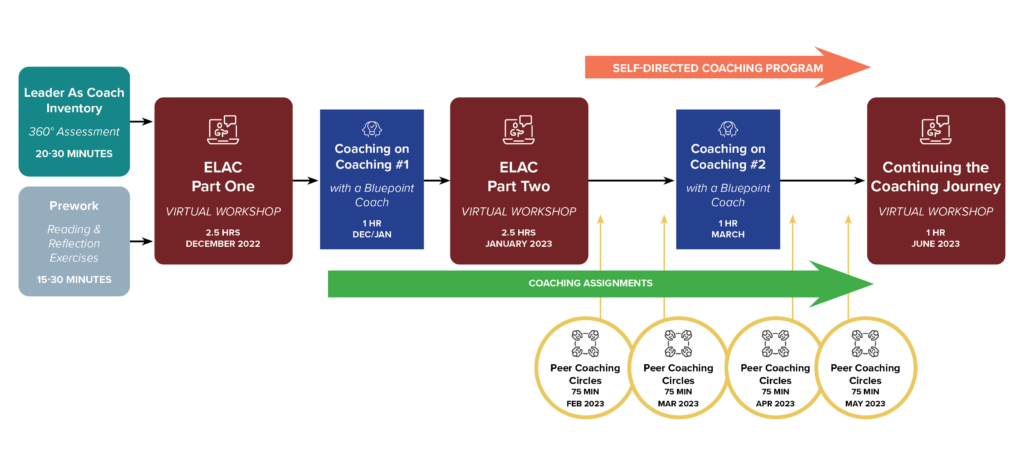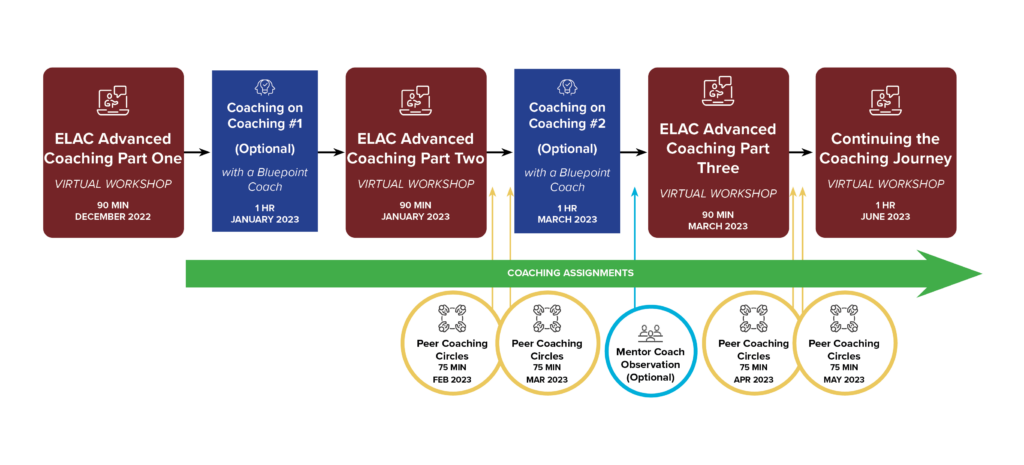BACKGROUND
Enbridge is a diversified energy company, fueling quality of life through its North American natural gas, oil or renewable power networks and its growing European offshore wind portfolio. The company is investing in modern energy delivery infrastructure to sustain access to secure, affordable energy and is building on two decades of experience in renewable energy to advance new technologies, including wind and solar power, hydrogen, renewable natural gas, and carbon capture and storage. Enbridge’s overall ambitious goal is to reduce the carbon footprint of the energy it delivers and to achieve net-zero emissions by 2050.
ENBRIDGE AT A GLANCE
- Headquartered in Calgary, Canada
- Workforce of more than 12,000 people
- Ranked among Canada’s top 100 employers 20 times
It’s a really busy time for our industry and our leaders, so their calendars are tight. It is very important for leaders to protect and carve out the time to learn as a top priority.”
– Susan Manning
CHALLENGE
In 2017, Enbridge shifted its focus to help its leaders move from a command-and-control leadership style to a more participative, coach-like approach. This shift became more intentional after a merger with Spectral Energy, when coaching became embedded in all leadership programs.
Enbridge was aware that its leaders often unknowingly directed people rather than coaching them, which was something that it wanted to improve.
Previously, leaders were brought together in a more ad hoc way, without structure or a true focus placed on learning. Recognizing the power of peers learning together, Enbridge had the vision to create a leadership development program that established a safe learning environment in which its executives could let their guards down, take some risks, and be completely vulnerable in their skill development while becoming strong coaches.
SOLUTION
Enbridge wanted to find a partner with whom it could develop a custom program that allowed its leaders to rethink their habits as well as begin to develop a strong, thriving coaching culture throughout the organization.
We wanted our leaders to become more aware of the coaching culture that they develop in terms of supporting, reinforcing, and actually living.”
– Susan Manning
Enbridge selected Bluepoint Leadership Development because of its inspiring content and ability to become a true partner in creating this special program. This meant not only encompassing Enbridge’s internal language but also driving home its unique coaching content.
Bluepoint worked closely with Enbridge to create a blended program for its cross-functional executives that would effectively meet their needs for an engaging learning experience. The Executive Leader as Coach Program (ELAC) focused on developing strong coaches and an effective coaching culture throughout the organization.
It was also extremely important to keep in mind executives’ busy calendars, so each component was tailored to include impactful content in various engagement lengths.
PROGRAM DESIGN AND DELIVERY

Program Rollout
Enbridge has seen great success in identifying executive sponsors to represent the program during the rollout of ELAC. These sponsors reach out directly to leaders who they think would benefit from the program and personally invite them, instead of the invitation coming from Human Resources.
Prework
The delivery of Enbridge’s ELAC program kicked off with prework, which was emailed to participants in preparation for the workshop. The objective of the prework was to have participants reflect on their personal experiences and how they might relate to the leadership concepts and principles they would be learning. For example, Enbridge’s participants were asked to reflect on the following questions: Who has been your personal best coach? What was different about this person? This allowed the participants to reflect on an individual that significantly impacted them and on what might have been different about this person. The prework facilitated learning, increased participants’ engagement in the program and established a common ground before the program began.
360 Assessment
Bluepoint then also used a 360 assessment before participants began the program to obtain feedback from multiple individuals who work with the participants, including supervisors, co-workers, direct reports and other stakeholders. The goal of the 360 assessment was to find areas for improvement or potential blind spots related to their coaching and leadership that others might notice. This assessment also created a baseline to measure growth while providing a valuable source of self-awareness.
“It wasn’t HR going out and advertising and promoting the program. It was a peer reaching out to their internal network, which our leaders really appreciated.”
– Susan Manning
Virtual Workshops: Part One & Part Two
Part One and Part Two of ELAC’s virtual workshops allowed participants to learn and practice coaching skills with a facilitator. The learning objectives from each session included:
- Acquiring immediately usable tools and skills that enhanced participants’ ability to have more conversations that matter and create a more inclusive work environment at Enbridge.
- Receiving direct, immediate feedback on their coaching effectiveness and identifying ways that they could earn the right to coach their direct reports and colleagues.
- Exploring ways in which participants could encourage their team members to see their potential and strive for higher personal accountability and performance.
- Identifying actions to establish a culture of coaching at Enbridge.
Individual Coaching on Coaching Sessions
To support participants on their development journeys, each participant worked with a Bluepoint leadership coach for two coaching sessions: one session after the ELAC Part One workshop and the second after ELAC Part Two. Participants were encouraged to take full advantage of this opportunity to help them apply the most critical learnings from each workshop and make actionable commitments to improve their coaching skills.
Coaching Assignments
As part of the program, participants were expected to seek out as many opportunities as possible to practice and improve their coaching skills and competencies. Coaching assignments began after the first workshop and continued through the entirety of the program.
Each participant had to establish at least one formal coaching relationship that met the following criteria:
- Connect with a colleague at Enbridge
- Focus on leadership, critical projects, performance or career development
- Hold coaching sessions once every two weeks (in between coaching circle sessions)
- Continue coaching relationship for a minimum of two months
“It really helped to impact the way our leaders lead and how they engage with their employees in more of those coaching moments.”
– Susan Manning
Coaching Circles
Beginning after the second ELAC workshop, participants joined three to four colleagues and a Bluepoint coach in a Coaching Circle. Coaching Circles met virtually for 75-minute sessions once a month for four months. Participants were tasked with the mandate to engage in coach-like conversations during which they encouraged and coached each other on leadership challenges and development commitments.
One program participant noted, “I think we all got value from the peer coaching sessions, as it made us think about the topic from different perspectives.”
These circle groups became a learning laboratory in which participants had the opportunity to rapidly accelerate their coaching skills.
Self-Directed Coaching Program
Bluepoint’s self-directed coaching program allowed participants to expand their coaching knowledge. This program is based on Gregg Thompson’s book “The Master Coach” and includes seven short five-minute videos accompanied by a fillable PDF guidebook. The videos and guide-book go hand in hand with The Master Coach book and include personal reflection exercises, coaching practices and tools,
and suggestions for applying newly learned skills in day-to-day conversations.
Continuing the Coaching Journey: Virtual Capstone Workshop
During this one-hour virtual session, participants had an opportunity to reflect on and share their learnings with colleagues and reinforce their commitment to a more coach-like approach. This workshop explored the participants’ commitments to building a strong coaching culture at Enbridge and identified ways to continuously build a culture in which team members are valued for their full potential and strive for higher personal accountability and performance.
RESULTS
Through several cohorts, the program continues to help shift leadership styles to a coaching-based approach and create a coaching culture within Enbridge. The most prominent benefit was the establishment of ELAC as an impactful and reputable executive program. The reaction from the first cohort group was so positive that they requested to share their experiences with their networks. This has led to a process of past participants identifying peer leaders who they believe will benefit from the program and personally inviting them to participate in future cohort groups. In turn, due to the excitement, peers have built their own learning network instead of the initiative coming from HR.
Enbridge was also pleased to recognize the ongoing request for further cohorts and learning initiatives due to the excitement from previous cohorts. It frequently receives positive feedback from the program, which has included an overall transformation in how its leaders coach others.
Many of the previous participants have gone on to regularly have career development conversations, taking on several mentees throughout the organization, and changing their overall perspectives and views on successfully coaching their teams.
Another participant noted, “I now address those difficult conversations and lead with open-ended questions to allow space for the talent to express themselves versus providing my advice.”
CONTINUING THE LEARNING

ELAC brought about such impactful results that Enbridge turned to Bluepoint for further program development, delving deeper into coach training. The result was ELAC Advanced, which maintained the same framework as ELAC, incorporating virtual workshops, coaching on coaching, coaching circles and assignments. However, ELAC Advanced had a personalized focus on the seven main characteristics of a coaching culture. This was achieved by identifying which characteristics were most pertinent to Enbridge’s values and culture and focusing on those as priorities throughout the program.
With ELAC Advanced, participants took their coaching abilities one step further and developed the skills to continue to earn the right to coach, encourage their teams to see their full potential for a higher level of personal accountability and performance, and enhance coaching conversations to move from one-on-one conversations to group and team coaching. Overall, leaders were able to continue to evolve their action plans for building a strong coaching culture at Enbridge.
“I have committed to do a better job of ‘listening, thinking and speaking like a coach’ and doing it more often. I also committed to work to ingrain the coaching philosophy at Enbridge.”
– program participant


